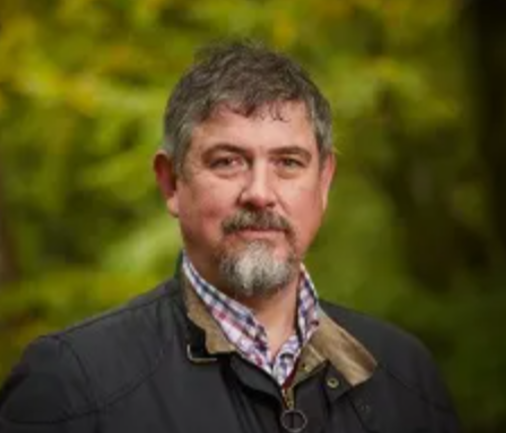MTI Viewpoints
Insights shared by industry relative to healthcare and the advancement of medical technology.

Ivor Campbell, Founder & CEO of Snedden Campbell
The revelation by the record-breaking Olympic cyclist Sir Chris Hoy that he has an untreatable form of prostate cancer, was a selfless act of courage and inspiration.
His willingness to share his tragic diagnosis, sacrificing his privacy to warn others, revealed the profound humanity of the man.
His story resonated deeply, particularly with middle-aged men, not only in the UK, but around the world. The realization that even a peak athlete like Sir Chris is vulnerable to this disease highlights the threat it poses to everyone.
His revelation served as a powerful wake-up call, prompting a global response. Inspired by his bravery, thousands of men – perhaps even millions – around the world have since sought to be screened.
However, the experience of all but a few has revealed a critical flaw in healthcare systems: even if it was possible to diagnose everyone in the early stages of prostate cancer, it is not desirable, politically, financially or even ethically.
GP surgeries in the UK have been overwhelmed by men asking to be tested and most have discovered, to their profound shock and disappointment, that the National Health Service only offers screening to those already exhibiting symptoms – placing them in precisely the same situation Sir Chris was in when he received his terminal diagnosis.
Health Minister Stephen Kinnock’s subsequent promise to “seriously look at” targeted screening for high-risk groups (men over 50 with family history, and black men) felt like a non-commitment.
While no-doubt sincere, his statement reflects the NHS’s inherent reluctance towards mass cancer screening, not because of a lack of resources, but rather due to a fear of overwhelming the system with untreatable cases.
Rapid advancements in diagnostics since the COVID-19 pandemic demonstrate that we are on the cusp of being able to identify many more and different cancers, quickly and inexpensively, on a mass scale.
Companies like Dxcover in the UK are developing cheaper, more accessible tests, mirroring the global race towards a versatile diagnostic device akin to the fictional Star Trek tricorder. AI is accelerating progress, with devices capable of simultaneously identifying various health markers already emerging.
However, this technological progress presents its own challenges, principal among them is that it risks overwhelming healthcare systems with diagnoses of large numbers of patients whose symptoms may be treatable.
Separately, there is the question of managing the emotional toll that rapid mass diagnosis of terminally ill patients would take, both on them and healthcare professionals who are with them when they receive the news.
Denmark has among the highest cancer rates among developed nations, but a large part of that is down to an extremely high detection rate, reflecting its robust healthcare capacity. Other western countries, including the UK and the US, have similarly high cancer rates but those are primarily caused by poor lifestyle choices of their populations and strained healthcare systems which fail to identify the illness until it is too late.
Improved testing would have to address these health inequalities, ensuring vulnerable populations are not overlooked. In America, where large numbers of people have limited healthcare insurance, or none at all, early diagnosis would simply allow them to live longer in the knowledge that they will soon die from a terminal illness.
Given the choice, however, most people would rather know they have cancer, and the sooner the better. The medical profession’s traditional, paternalistic approach – withholding information unless it directly impacts treatment – is increasingly at odds with public expectations.
In an ideal world, where costing and resourcing were not issues, there would be early detection of all cancers, leading to prompt and successful treatment. However, the reality is more nuanced. Early detection requires significant investment in screening programs and diagnostic technologies, placing a substantial strain on healthcare resources.
The prioritization of individuals displaying abnormal symptoms, while understandable given resource constraints, leaves those without apparent symptoms at risk of delayed diagnosis and potentially poorer outcomes. This disparity demonstrates the inherent inequalities within healthcare systems, where access to crucial services is often determined by socioeconomic factors.
Even with early detection, the capacity of a healthcare system to provide timely and effective treatment is crucial. A system overwhelmed by demand may render even the most sophisticated detection methods ineffective.
The problems would likely start in health centers, GP surgeries and diagnostic centers, including high street pharmacy stores, where family doctors, practice nurses and pharmacists would be ill-equipped to deal with emotionally vulnerable patents, who may just have learned from a marker on a testing cartridge that they have a terminal illness.
Thereafter, the journey of each patient would potentially be different, depending on their age, where they live and how much money they have. Postcode lotteries would abound, with some local healthcare authorities offering treatments that are not available to patients in other areas of the same country.
The introduction of universal screening would risk creating two large, and competing, groups of potentially terminal patients – those who could afford to pay for life-saving operations or treatments privately, and those who couldn’t.
Some healthcare authorities might also limit access to testing, to avoid being overwhelmed with cases requiring end-of-life care, leading to a system of diagnostic tourism.
This tension – between the desire for widespread early detection and the capacity of healthcare systems to cope with the consequences – highlights why providing more access to screening is simplistic and potentially counterproductive.
Attempts by governments to subtly increase taxes while avoiding a “run on guilt,” indicates the political sensitivity around healthcare funding.
Resource allocation is a complex process, constantly balancing competing demands. Prioritizing cancer care necessitates difficult choices, potentially diverting resources from other vital areas.
Sir Chris’s brave act in speaking publicly about his diagnosis, may have helped to raise awareness of the disease and the threat it poses to middle aged men, but it also starkly revealed the unpreparedness of healthcare services for the consequences of widespread, early cancer detection.
The challenge now lies in balancing the benefits of rapid diagnostics with the capacity to manage the resulting influx of cases.
Ivor Campbell is Chief Executive of Angus-based Snedden Campbell, a specialist recruitment consultant for the medical technology industry.



